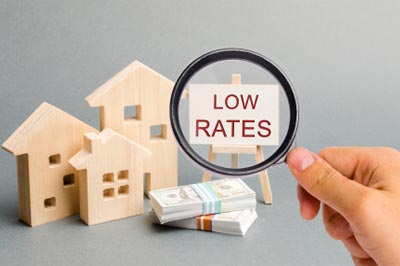Why Real Estate Investing is Ideal
Investing in real estate gives any investor a set of advantages that he / she will not receive in other forms of investments and asset classes. There is a term in Real Estate called IDEAL that has been known to seasoned real estate investors for decades. IDEAL is basically about the many ways of real estate investing that can help an investor accumulate profits and increase wealth.
IDEAL stands for :
• Income
• Depreciation
• Equity
• Appreciation
• Leverage
Having any of the above factors would make your real estate investments and holdings prove to be a valuable plus to any investment portfolio. Having all of the above 5 factors in one shot can truly accelerate your wealth-building potential. Let us delve into all the above four factors in detail.
Income
If you want to add a steady and stable stream of income to your finances then investing in real estate is one of the best ways to go about it. Whether you want to invest in real estate by owning properties yourself or through REITs (real estate investment trusts) it doesn’t matter. What matters is that you remain invested in the world of real estate. Historically real estate assets have always generated constant and reliable flow of cash because of rent payments making it the most popular investment for the common man and woman. For people who are heading towards retirement, this safe and secure mode of income can eventually replace your salary and other common investments such as stocks which don’t compare favourably with real estate in terms of regular income and safety of investments. Going further, if you build a portfolio of real estate investments you will be able to create cash flow from multiple avenues thus reducing your risk of being short of money should any other investment vehicle meet with hindrances.
Rental Properties
If you own one or two or more residential apartments or offices, each individual unit sends income to you every month. If you acquire enough decent properties and stable tenants you will be able to create an income that will rival or be even larger than the money you would make from a job. That can help you retire early or whenever you want to and at the same time have complete peace of mind. What is more you are also tapping into a resource that is always there for you to fall back on. If you should need a large amount of cash for any reason such as to pay for unexpected medical emergencies or even to take a round-trip around the world! Every rental property that you own represents a virtual ATM machine. You can borrow against a property or sell a property to get the cash you want!
REITs and Funds in India
REITs are a recent phenomenon in India and was launched to raise investment in the real estate sector in India and monetise rent-yielding assets. The REIT space is growing by leaps and bounds in India and has become very popular with investors in India. REITs offer investors the opportunity to partake in huge residential, commercial and industrial real estate deals. REITs have a special incentivized tax structure due to which they are mandated to pay out the lion’s share of their profits as dividends to shareholders. REITs are thus a guranteed income stream for real estate investors. Mindspace Business Parks REIT for example has brought 295 lakh sq. ft. of office properties located in Mumbai, Pune, Chennai and Hyderabad under the REIT portfolio. The annual rental income of just Mindspace alone is currently around Rs 1,300 crore, which was estimated to reach Rs 2,000 crore in the next few years if the Coronavirus pandemic hadn’t hit. But inspite of the pandemic-induced economic downturn, Mindspace REIT has recently raised Rs 1,519 crore from investors ahead of IPO. Read the whole article here.
Real estate mutual funds typically hold shares in REITs and pass on the part of the dividends along to share holders. With Real estate mutual funds, you as an investor have the option of reinvesting those dividends to invest in more shares or receive cash payouts.
Depreciation
In the world of accounting, Depreciation is an expense that tracks the decline through wear and tear in the value of assets over the course of time. For a lot of asses this is natural. As soon as a car drives off the showroom it loses value, computers and other machines break down over the course of 5 – 10 years. Most physical assets do not last forever. But in real estate, depreciation has an unusual connection – an expense on paper that actually converts into cash!
Depreciation reduces the taxable profits on your real estate investments and it may also compensate a part of your other incomes. This is a complicated grey area in which you might need to take the help of a qualified CA. But to give you an example, lets say you have one property that ends up with a tax loss due to depreciation and another property that produces taxable income the loss accrued from the first property can be utilised to decrease the profit from the second property. Also in certain cases, you could use that tax loss to reduce other types of income such as salary. This tax benefit works mostly for direct investing in properties and not so much for real estate mutual funds or REITs. Because depreciation is not a cash expense, REITs seem to pay investors more income than they themselves earn which is a plus for real estate investors.
The Only Asset That Never Depreciates
The world of accounting knows for a fact that every asset on earth depreciates except land. And unless the population of the world starts decreasing drastically which is unforeseeable in the near future, land will continue to remain the most valuable asset on the planet that appreciates year on year. When it comes to real estate investment properties, the only thing that depreciates is the buildings and structures that stand on the land. Therefore for accounting and tax reasons, the land value and the value of the buildings are kept separately. If you have any confusion about this aspect, an experienced CA can help you understand this during tax accounting time.
How This Works
Depreciation of property entails reducing annual income for accounting and tax reasons but unlike other expenses involving other assets, this depreciation has got no correlation to actually spending money. The “useful life” on which the paper expense of your investment property is usually tagged at close to thirty years. During the tenure of 30 years, a part of the property gets deducted from the rental income thus reducing the income tax liability. This in turn helps the investor retain more available cash on hand.
Other forms of real estate investments including REITs and real estate mutual funds also get the same depreciation expense benefits. These funds pass on the tax savings to investors in the form of higher returns or increase in value of their stocks.
Recapture Trap
The depreciation advantage has a catch though – If and when you sell your property you have to “recapture” the depreciation expense that you took on your property. This can cause you to get a huge tax bill in the year that you sell the property. Apart from the usual capital gains taxes on the sale you are also liable to pay the regular IT rate on the depreciation recapture. For example if you had a gain on the sale of your property (your property sold for more than what you paid for it) you would pay tax on the lower capital gains rate. On top of that you can also factor in the tax that you would have paid at the regular income tax rate on the total depreciation deductions that you would have taken over the years. Thankfully there are ways to go around that recapture so that you do not end up with a loss on the profitable sale of your property. We will discuss that later in a future article.
Equity
The part of your property that you own fully is referred to as Equity. Equity is the total value of your property minus any outstanding loans on the property. As you pay off your property loan, your equity viz. the percentage of your ownership also rises. And as property prices tend to move upwards over the years, your equity in your property also goes up. As your equity increases you can use that equity to create even more wealth. For example, you can borrow money against your existing equity and create a down payment for your next investment property. This may temporarily decrease your ownership stake in the original property even though when it comes to total equity you still have the same percentage – but you now have two income-producing properties!
This same concept is also true for indirect real estate investments like REITs. The holding companies can use these tactics to increase the value of it’s holdings and subsequently you benefit as well.
Increase in Value
There are 2 ways that the rise in property values in the market happens. The first one you cant control and the second one you can. The housing market in every part of the country and the world rises and falls from time to time and your property’s market value will ride along with the wave every time the property prices go up or fall down. If time is a luxury you can afford then you can ride out the down turns until the market rises up again. Do remember that if there is a downturn in the market such as the one we are seeing during the Coronavirus pandemic, you can be sure that it is only a matter of time before prices rise up again.
The second ways is to improve the property that you own. Whatever the changes that you do whether they are substantial or small or minor improving and renovating the property will generally increase it’s market value and may also increase the rental yield of the properties. You could add on more rental space or do smart alterations and renovations that may allow you to increase the sales price and attract more buyers.
Decrease your Debt
On the other side of the equity angle is Debt because it reduces your stake of ownership. You can reduce your debt commitments by making extra payments of principal. Not only will that succeed in adding to your equity but that will also reduce your interest portions going forward (interest is calculated on the outstanding balance of loan so lower balance equates less interest). When larger portions of every payment goes towards principal, your equity growth rate is faster. When it comes to rental properties, the income from your tenant covers all or a part of the mortgage – so your tenants are effectively paying you to increase your ownership stake.
Appreciation
Appreciation as the world suggests is the exact opposite of depreciation whereby the value of an asset increases over a period of time. Since Real Estate is among the very few physical assets that appreciate with the passage of time, it is the most desirable investment vehicle for anyone.
Property Trends
What plays an important role in real estate is Supply and Demand. When more people want to buy houses than there are available units for sale market value rises. The opposite also holds true. Demand can also be affected by changes in an area such as the arrival of new companies setting up office and rent out space in IT parks or changes in land zone laws. Real estate investors can stay updated on these trends by tracking realty news websites like ET Realty which will give them a clear picture of what the realty scenario is like in India and which areas are hot and which are cooling off.
Inflation
One of the most important factors that affects the appreciation of real estate is Inflation. The cost of everything increases over time because of the effects of Inflation. That includes the cost of the raw materials required to build, renovate, redevelop and develop buildings and land. Good news is that over the long term period, real estate values in India have kept pace with the rate of inflation and haven often outpaced it (depending on the area).
Leverage
This is something that we have discussed in an earlier article here on our blog – Leverage in Real Estate. The ability to use Leverage by investing just a small portion of money and borrowing the rest of the money to buy property is a unique feature of real estate investing and is one of it’s biggest advantages. If you come up with a down payment and take out a housing loan for the remainder of the cost of the property, you can invest in prime real estate for as little as 5 % of the purchase price which is a fraction of the cost for buying a property. This is a significant factor because if you think about it – only a small amount of your own money is tied up in the property but you still benefit as if you owned the whole property.
You are able to keep all the income that the property generates such as rent and rising value of the property. You also get to claim all the tax benefits apart from reaping the real rewards i.e. of soaring property prices which increases the valuation of your property many times over as the years roll on. You get to benefit from all these advantages with just a small investment leaving you to park the rest of your own money in other places. People how have created wealth through real estate use this principle to great effect and use leverage all the time to purchase income-generating real estate assets.
Use Leverage to Create Cash Flow
Unlike other types of investment assets your real estate investments gives you access to tax-free capital whenever you want to increase cash flow (not income). Lets see how this works – You borrow capital against the equity you own in your property which gives you access you access to the amount of money that you require. And if your property is rental property then the interest amount of your loan payments is tax-deductible which lowers your tax liabilities. At the same time, the rent that you get from your tenants goes a long way in covering your loan payments over a period of time. This works well with:
- Properties that have loans paid off mostly or completely
- Ongoing rental properties that have stable tenants locked in long-term leases
- Fixed-rate loans
The bottom line is that as long as the rental income remains good enough to cover your loan repayments you will always have access to tax-free cash whenever you need it! That’s the best part about your real estate investments!
Do not miss a single article!
Submit your email id to get new articles directly into your email inbox!
- Paperwork and Pricing of a Property - April 4, 2024
- What type of Real Estate Investor Are You? - March 25, 2024
- Various Ways to Profit as a Real Estate Investor - March 22, 2024




















